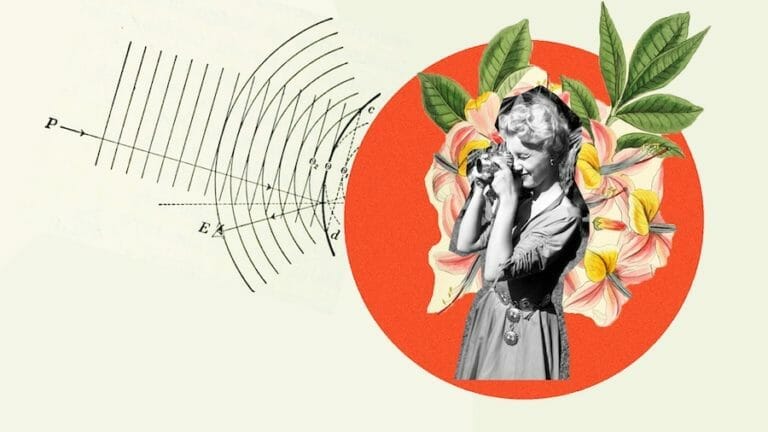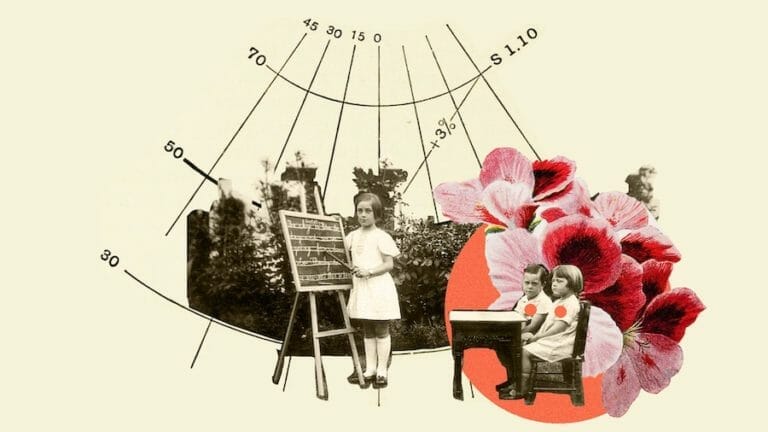What is an empath and how do you know if you are one?
Do you feel more deeply than others? Do you often wonder how to deal with being an empath? If so, here is the reminder that you are fully supported as you step into embodying this gift. Empaths are sensitive souls. They are highly attuned to the feelings and emotions of people around them. Some might think of sensitivity as a weakness. But don’t be misled; there are many benefits and some great strengths to being an empath.
If you are an empath, you are a real blessing in the topsy-turvy world of today!
Empaths value time spent alone. This doesn’t necessarily mean they are introverted. An empathetic person can also be an extrovert. But they will need more time to recharge their emotional batteries as being with people is draining.
Like an energetic sponge, empaths soak up the energies and feelings of those around them. This means that socializing for extended periods leaves empaths feeling exhausted. Taking time to cleanse and recharge your energy is a top priority.

Empaths can be very attuned to their environment and what is happening with those around them. Conflict can be difficult for them to bear and they often find themselves in the role of peacemaker or mediator.
This is because they understand the feelings and points of view of each side. Fairness and kindness are core values of the empath.
Their unique ability to share in the feelings of others makes empaths really good listeners. This means they are often trusted with secrets.
Empaths can sense when others are being authentic. They will often know when someone is lying. They see beyond the facial expression of a person and sense things on a deeper level.
Some key signs that reveal you are an empath are:
- You sense the emotions of those around you as if they are your own
- You feel emotionally affected by movies, social media, and watching the news
- You feel strongly connected to nature and animals
- Your emotions are intense, from exhilarating highs to crashing lows
- You are curious and want to understand life from different perspectives
There are also different types of empaths. An individual can also express the qualities of more than one type of empath.
Certain personality types are often associated with being an empath. In the Myers-Briggs personality test or MBTI, I classify as an INFP. This is also known as the empath or mediator.
I am acutely aware of how my personality type will draw similar types to me. Having encouraged others to try out the MBTI, I discovered that the majority of my friends are also INFP.

Different types of empaths
Emotional empaths
These are the most common type of empath. As an emotional empath, you intimately share the feelings of others. This is also known as affective empathy. There might be times when you feel upset for no reason or are completely washed out. This is because you absorb other people’s emotions. It is important that you check in regularly and ask yourself if these states belong to you or not. This will help you avoid being in a state of emotional overload.
Plant/animal empaths
Plant and animal empaths have a unique and special bond with plants and animals. You will be so in tune with their needs that you find yourself communicating with them. As a plant empath, you might enter a room and know instantly if a plant is crying out for water. Animals will be drawn to you and feel relaxed in your presence. Encountering animals in pain or discovering a favorite tree has been cut down can be extremely distressing.
Geomantic empaths
These gifted individuals are drawn to and connected with certain places. You might feel a deep emotional connection to a certain type of landscape or particular buildings. You can feel the energies that are transmitted by the earth. As a geomantic empath, you will want your surroundings to be natural and beautiful. This will help you to feel relaxed and at peace.

Intuitive empaths
Intuitives can pick up on things simply from body language or the energetic vibe of a person. As an intuitive empath, no words are needed for you to feel and understand the energies of others. Your energetic field will absorb these feelings. This means it is important to work on strengthening your field. This can prevent negative energies from building up and help separate your energy from others.
Highly sensitive empaths
They don’t just pick up on the emotions of others. They are sensitive to more than people’s feelings. They process external stimuli such as sensory information at a deep level. If you are a highly sensitive empath, you might overthink everything. This can lead to stress and overwhelm. Practicing self-care needs to be your biggest priority.
Telepathic empaths
Also known as psychic empaths, yhey can pick up on what other people are thinking. As a telepathic empath, you will know what is on another person’s mind before they have even spoken about it. This is because you are very connected to those around you. You will also be able to pick up on negative energies very easily.
How do you deal with being an empath and getting taken advantage of?
It can be tough for empaths to let go of difficult emotions. Dealing with being an empath involves a lot of self-awareness and focused self-care.
Emotional empathy means you are deeply in tune with others. When others are unhappy, you will feel their pain and have the desire to help them.
This can become a problem and can lead to you getting taken advantage of. Offering a shoulder to cry on comes naturally to you. But if this becomes a regular occurrence it can lead to taking on more than you can handle.
This type of situation can emotionally drain empaths and lead to compassion fatigue. Yes, we do want to help everyone, but not at the risk of losing ourselves.

One of the biggest lessons to learn as an empath is to look after yourself first. Then you are in a better position to use your gifts to help others.
Empaths should avoid becoming drawn into situations that will ultimately drain them. If you are not functioning at your peak, others might take advantage of your kindness.
Narcissistic personality types are often drawn to empaths. Empaths will feel like they can fix them, but end up getting taken advantage of instead.
This becomes a one-sided relationship with you endlessly giving more and more of yourself and getting nothing back.
The narcissist will adore this attention and can manipulate the empath. The lack of reciprocation for your compassion will ultimately drive you apart.
However, there are ways to identify these situations and avoid them. Here are some ways to protect your energy and clear your emotional body of negativity.
Practice self-awareness
Develop a deeper awareness of your thinking process. You may observe that you are feeling anger, for example. Take a minute to check in with yourself. Discern whether the angry thoughts belong to you or someone else. Developing this technique is extremely valuable. Self-awareness practices can take a lot of work. However, it is worth it and can reduce any worry and anxiety regarding your state of mind.
Set clear boundaries
As empaths are acutely in tune with other people, they can find it difficult to set and maintain boundaries. One way you can learn to set boundaries is to start by saying no. This will help to reduce your exposure to potentially draining people and environments. You don’t have to be a superhero and fix everyone’s problems all at once. Acknowledge your current feelings to identify who or what drains you and take steps to limit these in your life.
Energetically cleanse
Regularly energetically cleanse and decompress. This will help you to avoid emotional burnout. Emotional burnout occurs due to a build-up of stress. This is caused by other people’s emotions moving through you. It can leave you feeling exhausted both physically and mentally.
There are plenty of simple things you can do that will make a big difference. Take a dip in the water or have a salt bath. Intend that the water washes your energetic field clean. You can try some chakra cleansing or meditation practices to help center yourself. I know that walking in nature and hugging trees is a wonderful way to connect and ground my energy. Walking barefoot is a great technique that allows emotions to run down into the earth.
Try some different methods and find out which ones work for you.

Focus on protection
As an empath, your energy body can allow toxic or negative energy to pass through. But protecting your energy field is easily done. A simple technique I like to use whenever I am feeling vulnerable is visualization practice. This is a process of tuning in to your energy body and imagining a shield encompassing your whole body. Purple is a good color for psychic protection, but use whatever colors you feel drawn to. Once you can strongly sense this barrier, set an intention that it will draw out any negativity from your own body and prevent external negativity from entering. You can repeat this practice as often as you feel is necessary.
Tend to your mental health
Alone time is critical for your mental health. It can prevent you from becoming overwhelmed which can lead to stress.
Meditation, reading, and creativity can all help you connect more fully to yourself allowing your light to shine brighter. Practicing yoga takes care of your physical body. It is a good way to get stuck emotions moving through your body.
Being an empath can be mentally and psychologically draining, so having some fixes up your sleeve is essential. Writing things out can be very cathartic. Journaling has improved my mental health dramatically. Even if you don’t know where to start. Just get a pen and allow it to flow. You will feel a weight lift from your mind and feel a lot brighter.
What powers do empaths have?
Dealing with being an empath might feel like a lot of hard work. But taking the time to understand your uniqueness will bring huge rewards.
As an empath, you have a gift. Some consider empathy a superpower!
You can connect with others on a much deeper level. This is key for communication, connection, and collaboration.
You can perceive the truth of situations long before it is brought to light.
You have an ability to feel intensely the sufferings of others. You can understand another person’s point of view by stepping into their shoes. This is much more than just sympathy.
A lot of empaths will follow paths of energy healing modalities such as reiki.
Many empaths have healing abilities. You might not define yourself as a professional healer, but healing happens in a variety of ways.
For some people, your gift of a non-judgmental, supportive presence will provide plenty of healing for them.
People are drawn to your natural healing aura. This is why strangers feel comfortable talking to me. I often discover somebody’s life story on a train journey.
Understanding your powers will be able to live more authentically from your heart. Your journey of self-discovery will give you the strength to help people and the planet.

Are empaths born or made?
Since an empath can easily put themselves in another person’s shoes, being able to view the world from another point of view is a skill that can be learned.
Generally speaking, children up to the age of 3 are unable to feel empathy. The skill of understanding different perspectives is developed as they learn how their actions affect other people.
Children will observe those around them and imitate these behaviors.
This means that empathy is a personality trait that will be naturally strengthened through life experience.
The more we get to know other people and have different life experiences, the more we can understand, accept and embrace difference.
Understanding your unique abilities will help you realize how special your gifts are.
Take a moment to sit in stillness and feel thankful for the special person you are.
Remember to celebrate your gift and feel gratitude for your open and compassionate heart.
External Resources
5 Major Personality Traits That Prove You’re In The Presence Of A Real Empath
Empaths – you know who you are
What is an empath?
Narcissism as a consequence of trauma and early experiences
